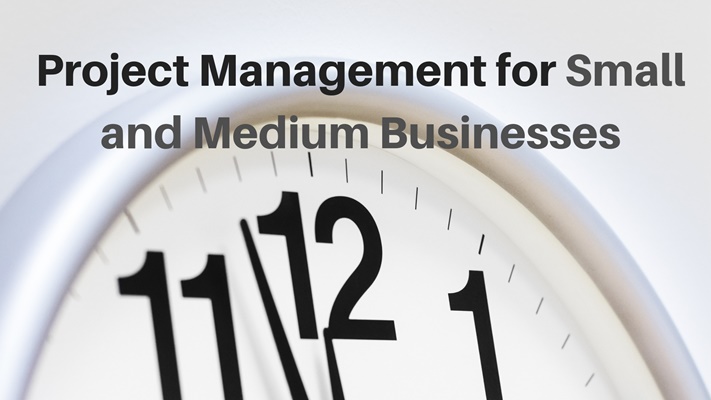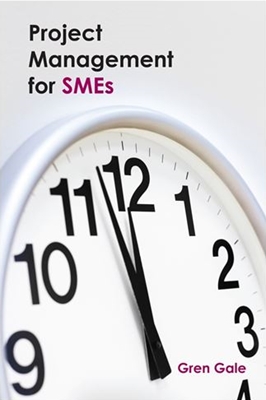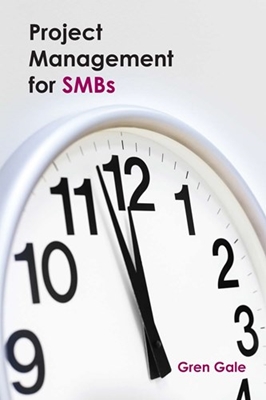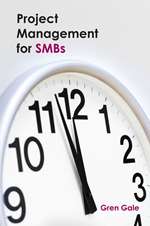If you don’t estimate costs well you’ll run out of budget
Estimation is one of the most important parts of a project, but also one that people often feel the most uncomfortable with. If you estimate costs poorly then as the project progresses, the whole business case can quickly become invalid as costs exceed estimated benefits and you run out of budget. Worse still, if costs are running completely out of control, then particularly for a small business, this could become a threat to its financial stability.
Some people will tell you that estimation up front is impossible and it is a lot more difficult than doing it as you go, but unless you can find a sponsor who is prepared to let you carry out as much change as you can for a fixed sum of money, then you’re going to have to produce some estimates up front.
Leave estimation to the experts
Estimation and planning is a team job. The Project Manager has to co-ordinate this, but the teams who are going do the work need to estimate costs, otherwise they will feel no ownership or commitment to them. You may have to help them if they’re not used to producing estimates, but you shouldn’t be imposing your estimates on them.
I have seen Project Managers produce all of the estimates and plans for a project and then hand these tablets of stone to the team. Don’t do this, it doesn’t carry much chance of success. You can and should challenge and question estimates, but you shouldn’t estimate costs for work that other people are going to carry out.
Do you know what’s required?
If you don’t know what you want then you’ll get your estimates wrong. So make sure the scope of the project is understood in enough detail that the estimation team feel comfortable before you try to estimate it. If the estimation team don’t fully understand the scope then pull together workshops with the estimators and your customer to flesh out what’s required in enough detail to arrive at reliable estimates
How to help your team to produce estimates
To help the team to estimate costs, ask them to think through what they need to do to deliver what’s required, list this out and then break it down into small enough components that they feel comfortable to estimate.
You also need to think realistically about productivity and timescales. What other tasks are the people doing the work going to be involved in? Do they answer phones or support other work? They might think something will take five days to complete, but how much elapsed time will that translate into when you take account of all of their other responsibilities.
People are on the whole optimistic when they estimate costs, so have a tendency to underestimate, especially if they have little experience of estimation. This is why it is important for the Project Manager to challenge any estimates and push estimators to make sure that they have taken account of everything.
Track how good individuals and teams are at estimation
You need to track your spend as the project progresses, but try also to track how well the individual estimators do against actuals, so that the next time you ask them to estimate, you will know from experience if they are optimistic or realistic estimators and can add contingency accordingly.
Include what you need to purchase, not just effort
Don’t miss what you might have to buy to deliver your project. People’s time will be one of your costs, but do you need to rent and equip accommodation, buy furniture, computer hardware and software, training, transport etc?
Don’t rush estimation and planning
Put a lot of work into estimation and your outline plan. It’s not unusual that everyone is in a big hurry to get the project going and want to get this phase out of the way, but your project sponsor is unlikely to be impressed by changes in costs and timeframe once the project is underway.
Try as far as possible to resist any pressure to just get started – you need to do a good job on your estimates and initial planning. Time spent at the start of the project will always pay rewards later.
Estimates for Outsourced Work
If you need to estimate costs for outsourced work, then the best that you will be able to achieve initially is a budgetary estimate. This is unlikely to be accurate and in my experience is likely to be a lot lower than the final quote.
You won’t be able to get a reliable quote from a supplier until you can provide them with detailed requirements. I would recommend adding a large amount of contingency – at least 20% to any estimate that you get from a supplier that isn’t based on detailed requirements.
Contingency
Carefully consider contingency, both for costs and timescales. An effective way of estimating contingency is a risk based approach. Work out your major risks and then work out how much contingency you need to mitigate these risks.
Beware of being pressured to remove the contingency, because the project isn’t viable with it included. Giving way to this pressure usually spells regret and potentially disaster further down the line, so I would recommend resisting this. I’ve never run a project where everything went as expected, so I doubt you ever will. You need contingency, it’s not an optional extra.
You may want to think about how you use contingency in the project. It can make sense to keep a slice of contingency for the Project Manager to control. The Project Manager can then push the estimators to hit their original estimates, knowing that they have contingency in their back pockets, if that doesn’t happen. This counters the tendency for the work to expand to use all of the contingency, as well as the original estimates.
Audit Trail
Keep an audit trail of how you have arrived at your estimates, so that you can defend and explain them later, when challenged to do so. Cost data derived from previous projects can also be helpful in justifying your estimates.
Enjoyed reading this?
Enjoyed reading this, why not sign up for more free project management tips.
Read more advice on Project Management in Project Management for SMEs and Project Management for SMBs
Gren Gale is a consultant specialising in Remote Work and Project Management








Your post about project estimation is bang on. I liked the way you have accounted for subject matter experts (SMEs), risks (contingency), buffer, non-human resources.
Another interesting aspect is learning from the past. Project closure notes to include commentary about project cost estimation and actual cost comparison. The better way of organizing project cost estimation/cost information and in turn better management of projects is to use right project management tool.